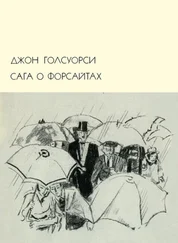Джон Голсуорси - Swan Song
Здесь есть возможность читать онлайн «Джон Голсуорси - Swan Song» весь текст электронной книги совершенно бесплатно (целиком полную версию без сокращений). В некоторых случаях можно слушать аудио, скачать через торрент в формате fb2 и присутствует краткое содержание. Жанр: Классическая проза, на английском языке. Описание произведения, (предисловие) а так же отзывы посетителей доступны на портале библиотеки ЛибКат.
- Название:Swan Song
- Автор:
- Жанр:
- Год:неизвестен
- ISBN:нет данных
- Рейтинг книги:3 / 5. Голосов: 1
-
Избранное:Добавить в избранное
- Отзывы:
-
Ваша оценка:
- 60
- 1
- 2
- 3
- 4
- 5
Swan Song: краткое содержание, описание и аннотация
Предлагаем к чтению аннотацию, описание, краткое содержание или предисловие (зависит от того, что написал сам автор книги «Swan Song»). Если вы не нашли необходимую информацию о книге — напишите в комментариях, мы постараемся отыскать её.
Swan Song — читать онлайн бесплатно полную книгу (весь текст) целиком
Ниже представлен текст книги, разбитый по страницам. Система сохранения места последней прочитанной страницы, позволяет с удобством читать онлайн бесплатно книгу «Swan Song», без необходимости каждый раз заново искать на чём Вы остановились. Поставьте закладку, и сможете в любой момент перейти на страницу, на которой закончили чтение.
Интервал:
Закладка:
With her mother, her aunt and the two trained nurses she divided the watches, so that there were never less than two, of whom she was nearly always one, in Annette’s bedroom where Soames lay. She would sit hour after hour, almost as still as her father, with her eyes wistful and dark-circled, fixed on his face. Passion and fever had quite died out of her. It was as if, with his infallible instinct where she was concerned, Soames had taken the one step that could rid her of the fire which had been consuming her. Jon was remote from her in that room darkened by sun blinds and her remorse.
Yes! She had meant to be killed by that picture, ironically that of the Goya girl whose dress she had worn when she visited Jon’s room at Wansdon, and when she danced with him at Nettlefold! Distraught that desperate night, she did not even now realise that she had caused the fire, by a cigarette flung down still lighted, not even perhaps that she had smoked up there. But only too well she realised that because she had wanted to die, had stood welcoming sudden extinction, her father was now lying there so nearly dead. How good he had always been to her! Incredible that he should die and take that goodness away, that she should never hear his flat-toned voice again, or feel the touch of his moustache on her cheeks or forehead. Incredible that he should never give her a chance to show that she had really loved him—yes really, beneath all the fret and self-importance of her life. While watching him now, the little rather than the great things came back to her. How he would pitch a new doll down in the nursery and say: “Well, I don’t know if you’ll care for this one; I just picked her up.” How once, after her mother had whipped her, he had come in, taken her hand and said: “There, there. Let’s go and see if there are some raspberries!” How he had stood on the stairs at Green Street after her wedding, watching, pale and unobtrusive, above the guests clustered in the hall, for a turn of her head and her last look back. Unobtrusive! That was the word—unobtrusive, always! Why, if he went, there would be no portrait—hardly even a photograph, to remember him by! Just one of him as a baby, in his mother’s arms; one as a little boy, looking sceptically at his velvet knickers; one in ‘76 as a young man in a full-tailed coat and short whiskers; and a snapshot or two taken unawares. Had any man ever been less photographed? He had never seemed to wish to be appreciated, or even remembered, by any one. To Fleur, so avid of appreciation, it seemed marvellously strange. What secret force within that spare form, lying there inert, had made him thus self-sufficing? He had been brought up as luxuriously as herself, had never known want or the real need for effort, but somehow had preserved a sort of stoic independence of others, and what they thought of him. And yet, as none knew better than herself, he had longed to be loved. This hurt her most, watching him. He had longed for her affection, and she had not shown him enough. But she had felt it—really felt it all the time. Something in him had repelled feeling, dried up his manifestation. There had been no magnet in his “makeup.” And stealing to the bed—her mother’s bed where she herself had been conceived and born—she would stand beside that almost deserted body and drawn dun face, feeling so hollow and miserable that she could hardly restrain herself.
So the days and nights passed. On the third day about three o’clock, while she stood there beside him, she saw the eyes open—a falling apart of the lids, indeed, rather than an opening, and no speculation in the gaps; but her heart beat fast. The nurse, summoned by her finger, came, looked, and went quickly out to the telephone. And Fleur stood there with her soul in her eyes, trying to summon his. It did not come, the lids drooped again. She drew up a chair and sat down, not taking her eyes off his face. The nurse came back to say that the doctor was on his rounds; as soon as he came in he would be sent to them post-haste. As her father would have said: “Of course, ‘the fellow’ wasn’t in when he was wanted!” But it would make no difference. They knew what to do. It was nearly four when again the lids were raised, and this time something looked forth. Fleur could not be sure he saw anything particular, recognised her or any other object, but there was something there, some flickering light, trying for focus. Slowly it strengthened, then went out again between the lids. They gave him stimulant. And again she sat down to watch. In half an hour his eyes reopened. This time he SAW! And for torturing minutes Fleur watched a being trying to BE, a mind striving to obey the mandate of instinctive will power. Bending so that those eyes, which she now knew recognised her, should have the least possible effort, she waited with her lips trembling, as if in a kiss. The extraordinary tenacity of that struggle to come back terrified her. He MEANT to be a mind, he MEANT to know and hear and speak. It was as if he must die from the sheer effort of it. She murmured to him. She put her hand under his cold hand, so that if he made the faintest pressure she would feel it. She watched his lips desperately. At last that struggle for coherence ceased, the half-blank, half-angry look yielded to something deeper, the lips moved. They said nothing, but they moved, and the faintest tremor passed from his finger into hers.
“You know me, darling?”
His eyes said: “Yes.”
“You remember?”
Again his eyes said: “Yes.”
His lips were twitching all the time, as if rehearsing for speech, and the look in his eyes deepening. She saw his brows frown faintly, as if her face were too close; drew back a little and the frown relaxed.
“Darling, you are going to be all right.”
His eyes said: “No”; and his lips moved, but she could not distinguish the sound. For a moment she lost control, and said with a sob:
“Dad, forgive me!”
His eyes softened; and this time she caught what sounded like:
“Forgive? Nonsense!”
“I love you so.”
He seemed to abandon the effort to speak then, and centred all the life of him in his eyes. Deeper and deeper grew the colour and the form and the meaning in them, as if to compel something from her. And suddenly, like a little girl, she said:
“Yes, Dad; I will be good!”
A tremor from his finger passed into her palm; his lips seemed trying to smile, his head moved as if he had meant to nod, and always that look deepened in his eyes.
“Gradman is here, darling, and Mother, and Aunt Winifred, and Kit and Michael. Is there anyone you would like to see?”
His lips shaped: “No—you!”
“I am here all the time.” Again she felt the tremor from his fingers, saw his lips whispering:
“That’s all.”
And suddenly, his eyes went out. There was nothing there! For some time longer he breathed, but before “that fellow” came, he had lost hold—was gone.
Chapter XVI.
FULL CLOSE
In accordance with all that was implicit in Soames there was no fuss over his funeral. For a long time now, indeed, he had been the only one of the family at all interested in obsequies.
It was then, a very quiet affair, only men attending.
Sir Lawrence had come down, graver than Michael had ever known him.
“I respected old Forsyte,” he said to his son, while they returned on foot from the churchyard, where, in the corner selected by himself, Soames now lay, under a crab-apple tree: “He dated, and he couldn’t express himself; but there was no humbug about him—an honest man. How is Fleur bearing up?”
Michael shook his head. “It’s terrible for her to think that he—”
“My dear boy, there’s no better death than dying to save the one you’re fondest of. As soon as you can, let us have Fleur at Lippinghall—where her father and her family never were. I’ll get Hilary and his wife down for a holiday—she likes THEM.”
Читать дальшеИнтервал:
Закладка:
Похожие книги на «Swan Song»
Представляем Вашему вниманию похожие книги на «Swan Song» списком для выбора. Мы отобрали схожую по названию и смыслу литературу в надежде предоставить читателям больше вариантов отыскать новые, интересные, ещё непрочитанные произведения.
Обсуждение, отзывы о книге «Swan Song» и просто собственные мнения читателей. Оставьте ваши комментарии, напишите, что Вы думаете о произведении, его смысле или главных героях. Укажите что конкретно понравилось, а что нет, и почему Вы так считаете.











